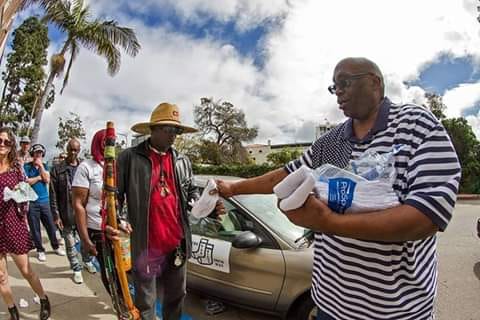It was August of 2017. Hal Sadler was sitting in his parked car, outside Graham Memorial Presbyterian Church. He was nervous, and he was afraid to go inside.
Hal didn’t live in Coronado; he lived in Chula Vista. He wasn’t white; he was black. Why was he about to go into this new church with a bunch of white people he didn’t know?
“I will never forget that first Sunday,” says Hal. “I was sitting in my car, thinking. Why am I at this church? I’m black. What am I doing here?”
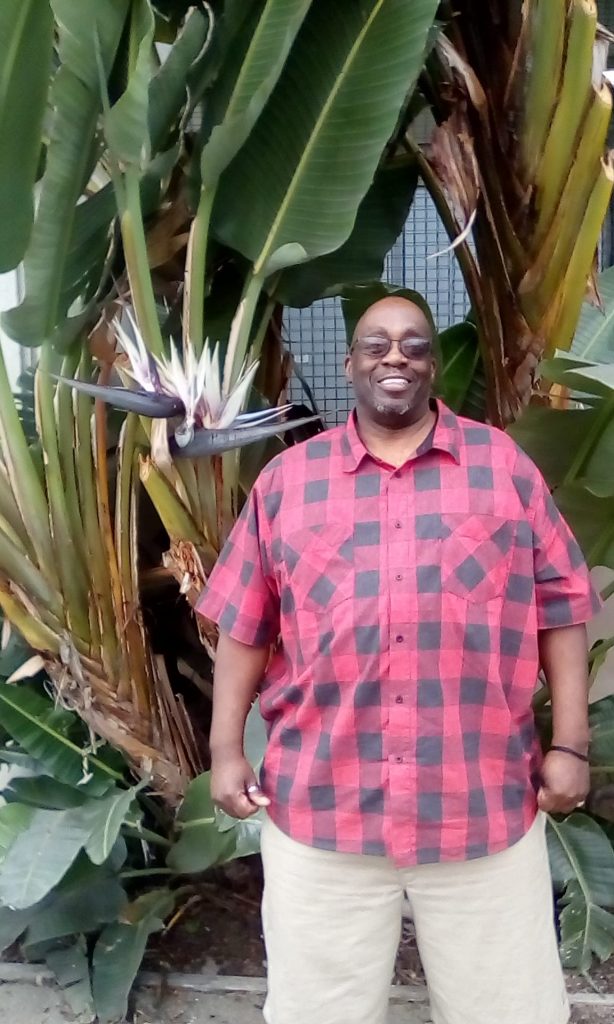
Hal took a deep breath and walked in. He looked to the left, and he looked to the right. He saw an older gentleman sitting, wearing an oxygen mask.
“I thought, this guy isn’t going to beat me up,” laughs Hal. “I’m going to go sit behind him. Well, he seemed to know I was nervous. He turned around with his oxygen mask on, to talk to me, to say hello, to welcome me. And you know what? It calmed me down.”
The rest is history. Hal has been attending church at Graham Memorial every Sunday since. He says he embraces a “good vibes” approach to life, and his church is a big part of that.
“I don’t believe in screaming the bad. I believe in screaming the good,” says Hal. “I have a lot of hurt and personal stuff, but I truly believe that most people are kind and caring. My experiences in the last few years have been those of education and growth. And I’ve met a lot of my very best friends at my church in Coronado.”
So just how did this black man from Tupelo, Mississippi—the birth place of Elvis—end up at church in Coronado? (By the way, Hal’s mom knew Elvis. “He used to hang with the brothers,” says Hal.)
After serving in the Army for four years–from 1987 to 1991–Hal was seeking change. He was then—and is now—a disabled combat veteran, suffering some problems in his legs after 187 parachute jumps.
“Do you remember the Noriega situation in Panama?” asks Hal. “My unit was there.”
But Hal was on the path to nowhere. He had some bad habits he just couldn’t kick.
“I wanted to leave. I wanted to make a geographical change, to get away,” he says. He left Mississippi in 2003, and moved in with his uncle in California, hoping a new environment would do him good.
“But I brought my bad behavior with me,” laments Hal.
After suffering through the ramifications of some self-admitted bad choices, Hal hit rock bottom. He found himself on the streets; he was homeless.
But something happened that changed everything. Hal recalls a kind and unlikely benefactor who offered him a chance to stay at his condo in Imperial Beach and get cleaned up. He was offered clean clothes and fresh socks. Eventually, his new friend helped him check into Veteran’s Administration Medical Center, and get treated for his problems.
Hal says he’s been thinking good thoughts, and making good choices ever since.
“In order to change your life, you have to change your thoughts,” Hal says. “Look for the good. Don’t look for the bad.”
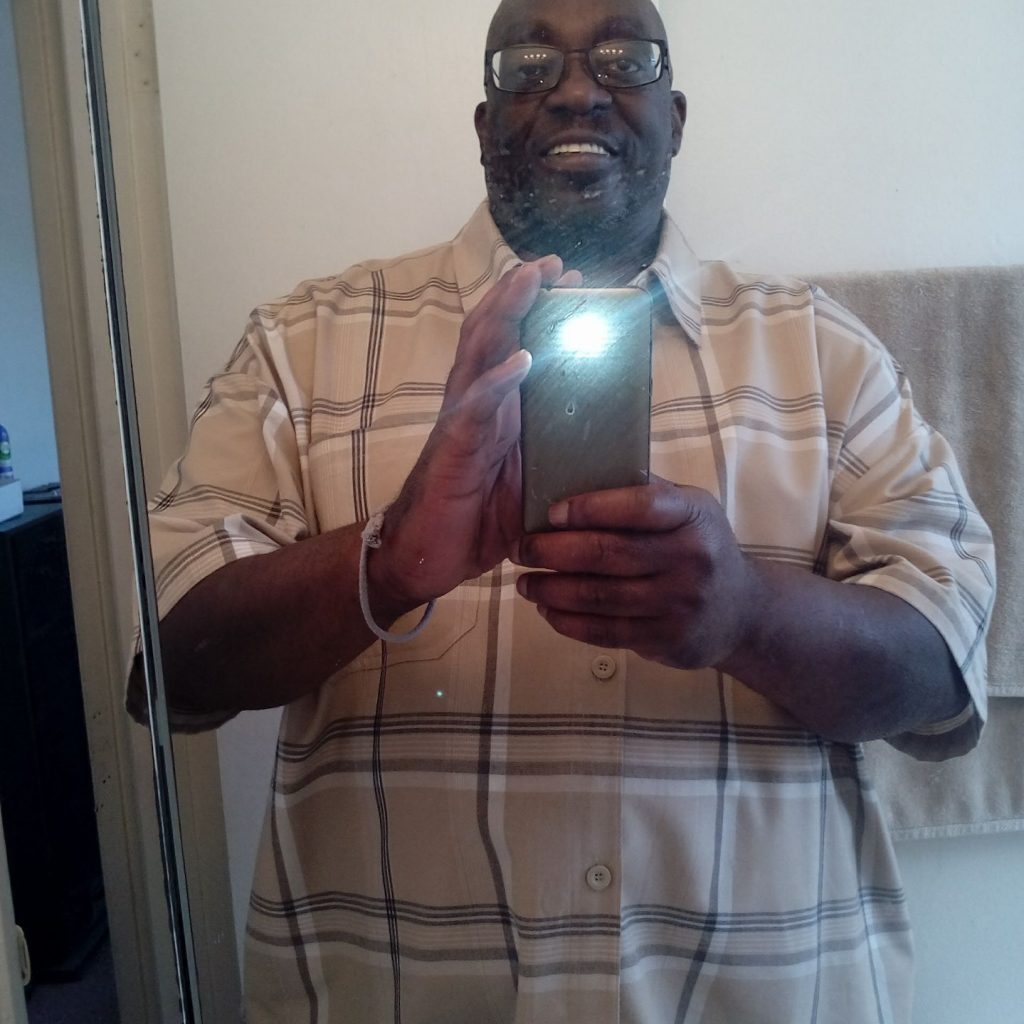
Although Hal has one glass eye and suffers from glaucoma, he hasn’t lost sight of the bigger picture. Hal says he’ll never forget how it felt to put on a nice pair of clean, warm socks. So, he decided to send the love back, thousands of times over.
Hal Sadler is now the San Diego Sock Man. He is single-handedly responsible for handing out more than 10,000 pairs of new socks to the homeless population of San Diego. He routinely participates at homeless outreach events to distribute his socks, and is known for his messages of love and positivity.
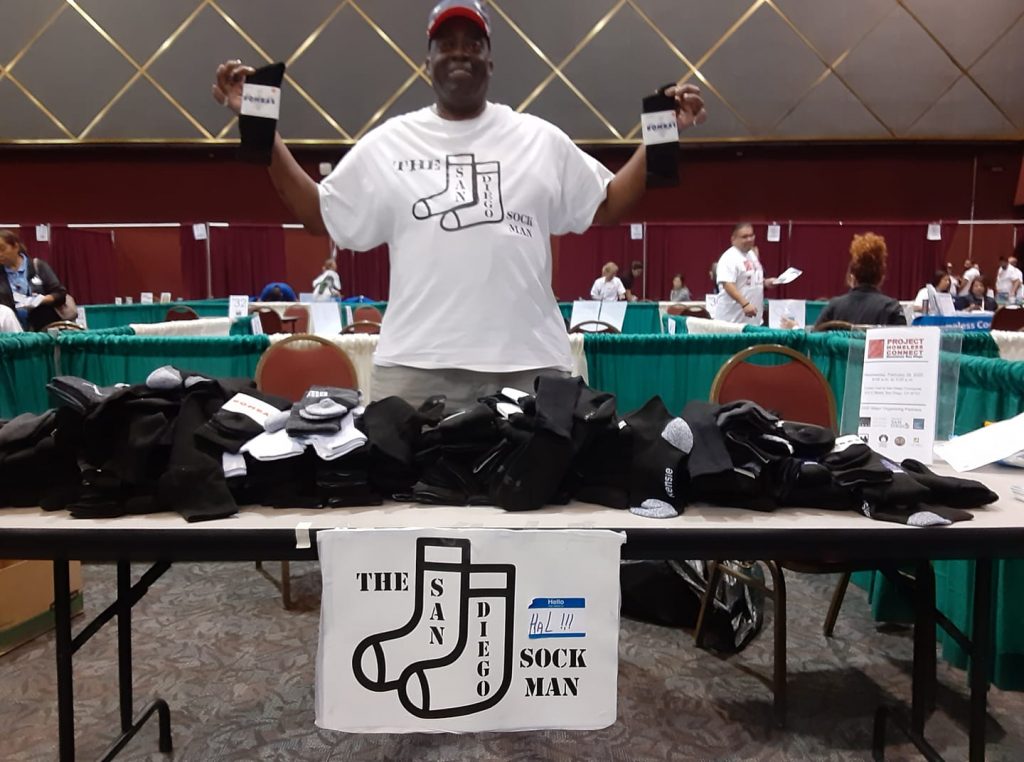
Eventually, he found his way to Coronado.
It happened like this. In his plight to help the homeless, Hal decided to attend a San Diego City Council meeting at Golden Hall. The only problem? He had no idea how to get there. He hopped off the trolley and asked an older gentleman with a cane for help with directions. This man—Glenn Orville, known as O.G., and a former taxi cab driver in Coronado—would become a good friend and introduce him to a special group of people.
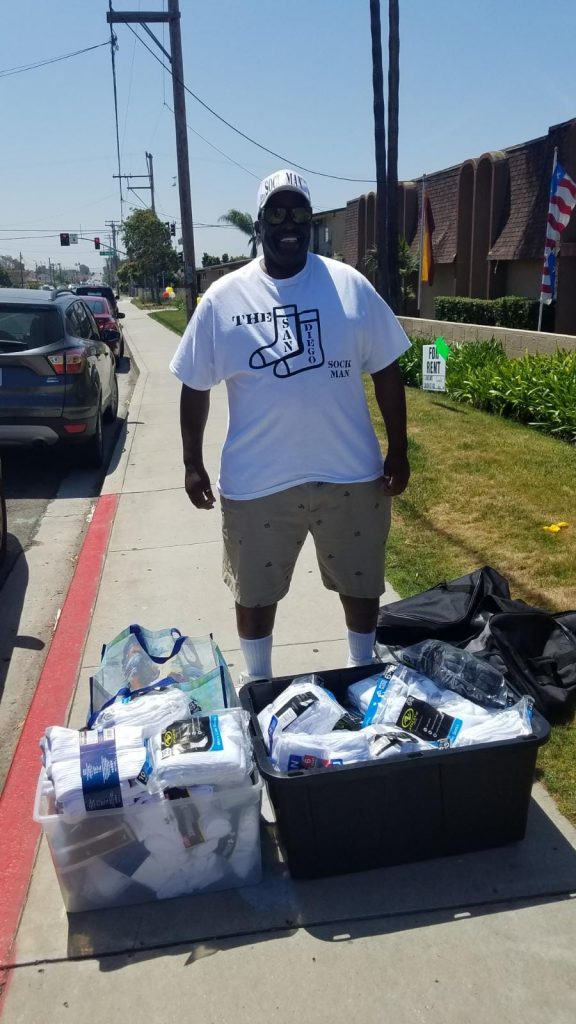
After the meeting, O.G. invited him to attend an event with the Coronado Men’s Connection, a group that connects church leaders with local men seeking to better their lives through integrity and spiritual growth. Hal accepted the invitation, and soon found himself at a home on First Street in Coronado, surrounded by strangers.
“It was a lot of talking and listening,” says Hal. “I was the only black guy, but it was no big deal. They were all extra-courteous and they made sure I felt welcome. At that meeting, I met Dr. David McElrath, the pastor of Graham Memorial.”
Hal was invited to attend Graham’s 6:30 am bible study on Saturday mornings, which—as an early bird–suited him just fine.
“It was right up my alley,” says Hal. “I had no intention of actually attending church. I just wanted to learn about God Almighty.”
Eventually, Hal got a message. The message was, the congregation of Graham Memorial Presbyterian Church wanted to meet him. He was asked to come to a Sunday service. This Coronado church—once foreign and strange—is now his spiritual home. He says the people at Graham are some of his very best friends.
Hal enjoys doing other things in Coronado as well. He loves riding his bike around the island, and grabbing food at Spiros Gyros.
“Yeah, they know me at Spiros,” laughs Hal. “I’ve never had any problems in Coronado. In fact, it truly reminds me of Tupelo, the small town where I grew up. They are both kind of in a time capsule.”
Hal is very grateful for finding his church, and says he is blessed to have God in his life.
“You are really talking to a true, living testimony,” says Hal. “To think I ended up at Graham, and a place of learning, and in a way that that made me feel so warmly accepted.”
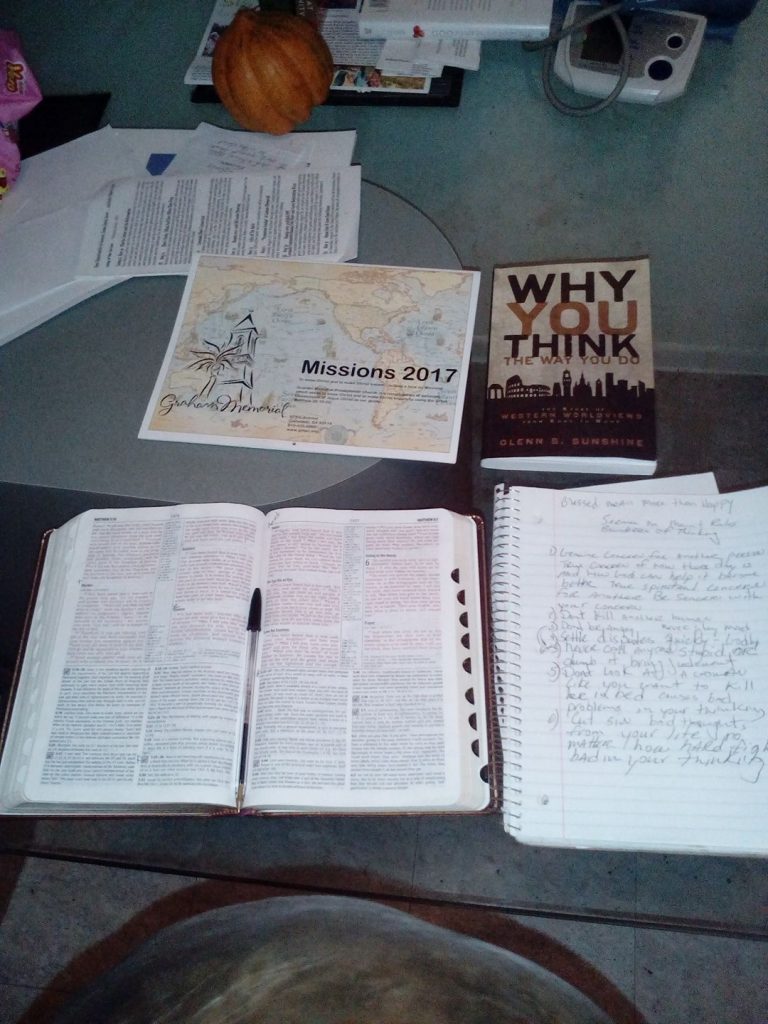
So how does this positive and peaceful mindset carry over into this tumultuous time of violence and civil unrest? How does Hal reconcile the tragic death of George Floyd with his beliefs?
He says one thing is certain: he could never watch a living person—of any color–suffer at the hands of another human.
“I think that if I saw anyone, white or black, any human on the neck of another being, be that a stray dog or a cat, I would fight them to get off that being’s neck,” says Hal. “To me, it’s a problem with the officer. It’s a problem in his thinking.”
Still, Hal says it’s not really about black and white. It’s a matter of what’s inside your head.
“Not all cops are bad, not all white people are prejudiced, and not all black people are criminals,” he says.
Although Hal admits that racial profiling by police does occur–and he’s seen it several times–he chooses to focus on the good.
“Yes, I’ve seen it. I’ve been stopped before by police, I’ve had encounters, across the bridge,” says Hal. “Some of it was the area I was in, some of it is that I’m a black guy on a bike, and some of it was because of my behaviors at the time.”
Hal says he has sympathy for the good cops out there, trying to do the right thing.
“I feel for the cops. I feel sorry for them,” he says. “They are stuck between a rock and hard place. They wake up in the morning, and they want to come home too. All of this, the actions of that bad apple, and you got to wear that same uniform, people throwing things at you. That’s horrible.”
Hal gives this advice: Don’t return evil for evil. Don’t return hate for hate. Love conquers hate.
“Ignorance comes in all colors. And good character comes all characters,” says Hal. “The game is to get good at figuring that out.”
Even in this time of turbulence and restlessness, Hal continues to share words of hope, compassion and gratitude to everyone he encounters. He truly believes that we—as humans—can create great change, starting with what is in our heads, and what is in our hearts. His positivity is infectious.
“We all have the power inside of us, we just have to access it,” says Hal. “Every day you wake up is a new day to get it right. You can change it, if you are alive to do so.”
